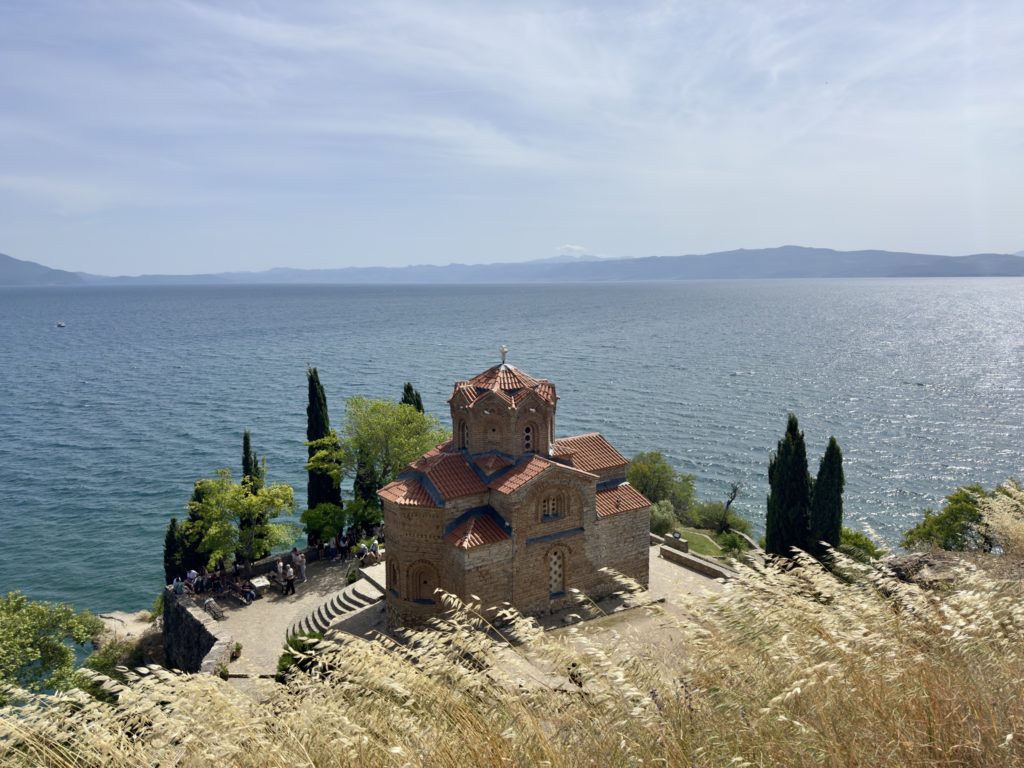
In my naive (non-)expectation, I was somewhat surprised by how much and how immediately we noticed differences when crossing a border from one Balkan country to another. I probably shouldn’t have been surprised, as I can also notice changes immediately when crossing Switzerland’s borders. However, I always assumed this was because at least one of the sides (Switzerland) is very familiar to me. Perhaps I was mistaken.
Montenegro
The moment we crossed the border from Croatia to Montenegro, a bicycle lane appeared out of nowhere next to the main street, and everyone started honking. At first, I wondered what I was constantly doing wrong, until I realized they just wanted to say hi. Instead of angry faces, the people in the honking cars smiled and waved enthusiastically. So, I tried to keep my bicycle steady, hide my startle, smile, and happily wave back—all while my heart was still pounding heavily.
Albania
Albania began for me even a few meters before the border. While standing in the car queue, a man waved from a car in a different line, gesticulating and indicating how we could bypass the queue as pedestrians. Faleminderit. Thank you.
Shortly after the border, the street was completely blocked by cars, and all new arrivals pushed in, worsening the congestion instead of making space to alleviate it. A coach driver completely locked in by the cars opened his window and smiled at us, “Welcome to Albania!” But immediately, an old man on a rickety bike appeared and indicated to follow him. I pushed aside my hesitation to involve myself in the chaos and followed Thomas and the man, who calmly and persistently led the way through the mess and out the other side. Faleminderit.
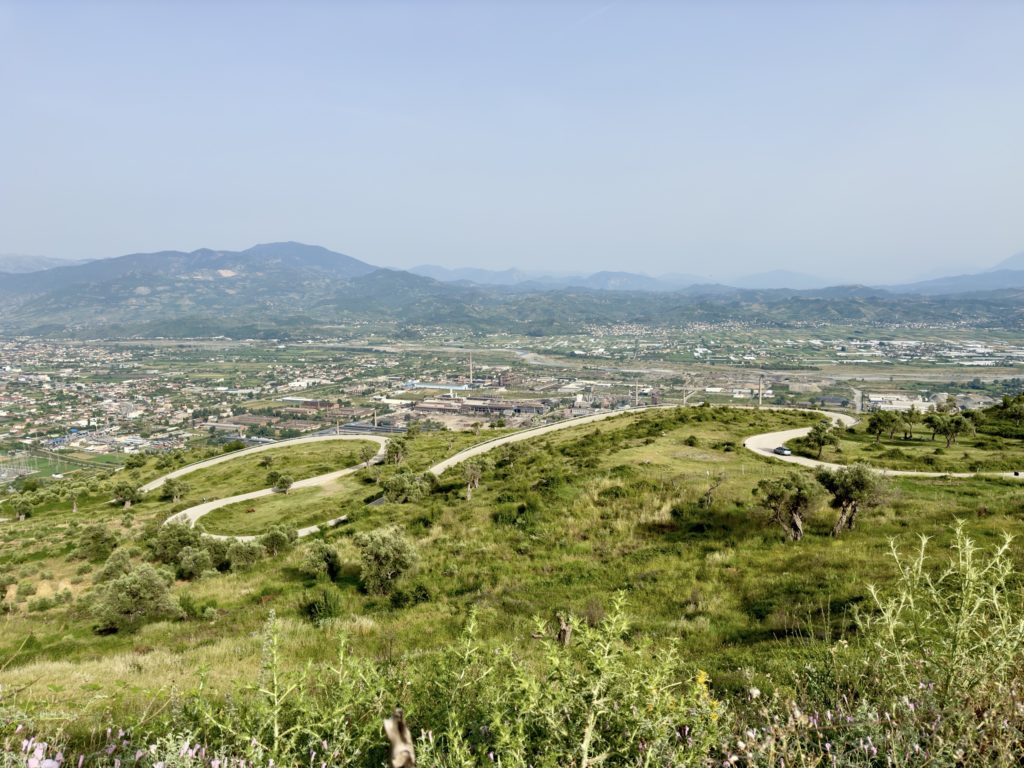
Traffic in Albania was the most chaotic so far, and rules seemed absent, but at the same time, it was also the most respectful and caring. I loved driving in this chaos. Nobody honked, or if they did (only to say hi, of course), it was at a comfortable distance and didn’t startle me. Cars gave us plenty of space, overtook with more than enough distance, and greeted cheerfully. So consistently, in fact, that if a car overtook us too closely, it was definitely not an Albanian number plate. Faleminderit.
One night in Albania, we stayed in a “villa” (a spacious two-room studio at the top of a big house) in a small town. We arrived late because we continued cycling after dinner, and the family was waiting for us in front of their house. They didn’t speak any English but welcomed us warmly, with everyone helping, bringing us water bottles and storing our bikes. When I went downstairs again to check if our bikes were okay and whether I should lock them, they all assured me it was completely safe (the father pointed to the security cameras), and the mother repeatedly said, “We are all family!” She hugged me, repeating, “They are safe, we are all family”—and indeed, I did feel a bit like family for the night. Faleminderit.
This out-of-their-way helpfulness defined my experience of Albania throughout. We were repeatedly taken under someone’s wing, and I felt cared for like nowhere else.
North Macedonia
Cycling into North Macedonia, I was curious to see what this country will bring. At first, nothing seemed different. But then it hit me: this “nothing” was a stark contrast to where we had just come from. Out of habit from Albania, I continued to smile and greet everyone enthusiastically, but nobody seemed to even notice. I was met with stern faces, and no one greeted back. Only on rare occasions did someone notice, and a hesitant smile appeared on their face.
The people at the hostel in Ohrid were really nice and welcoming. They shared their best swimming spots at the lake, and the hostel owner even invited us to his birthday barbecue in the garden. We were warmly included in the group by his friends as well. However, somewhat fittingly, the guy we talked to the most told us a lot about how hard it is to live on a Macedonian salary and how many people have to go abroad, at least temporarily, to earn money.
Greece
All the countries so far “faded” slowely before the border, with the new country making a strong presence right after the border—but not Greece. After crossing the Greek border, there was not much for a long time (not even Greek mobile network): some agriculture, a few houses, sheep, and a nice view of the mountains.
Unfortunately, the “not much” was still too much (agriculture) to easily find a nice spot for wild camping, and it was already getting dark. While Thomas was checking out a possible spot on a hill, a man stopped his car next to me. After exchanging a few sentences about where I was heading, he insisted I should go to Sitaria, his village, and praised the cafes and the shop there. But what about a place to stay for the night?
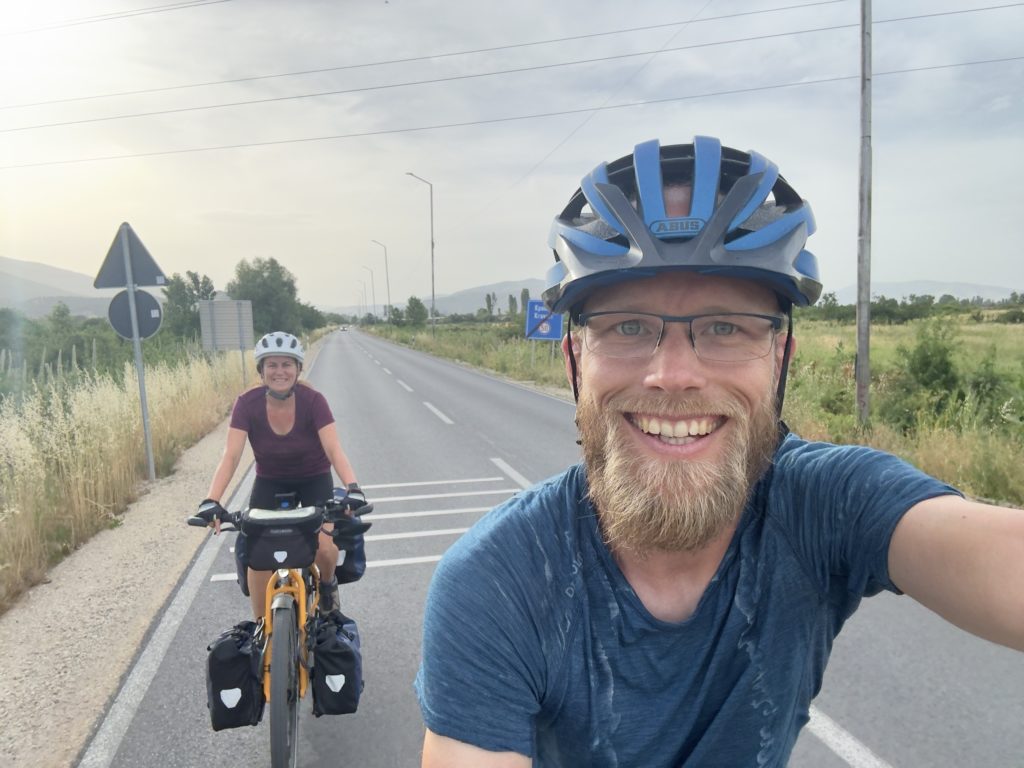
Anyway, as it was getting late, we went to his village and asked a woman, who seemed to be the only English speaker around, if there was a place to stay for the night. Suddenly, half the village was involved in feeding us and finding the man with the keys to the community hall where we could sleep. But he had many animals (so we were told repeatedly) and was still in the fields. Long after the woman left, another man sitting in the same restaurant walked over and handed me his phone with the man on the line. The man said a few words, talked in Greek to another person, and then the line was cut. When the phone rang again, I instinctively picked it up, only to hear Greek and realize it could be anyone… Slightly shocked, I handed the phone back to its owner, who talked in Greek for a while and then confirmed that the man would come with the keys. Long story short, we ended up sleeping on the floor of a random community hall in the middle of nowhere.
The next day, the landscape looked pretty similar, except that we had to cross some hills in the morning. Around 3 pm, after only about 50 km, we decided to book the hostel in Thessaloniki for the next day, thinking we wouldn’t make it there by nightfall (it was still about 95 km away, more than we usually cover in a whole day). Five hours later, at the reception in Thessaloniki: “Yes, we have a booking, but for tomorrow…” Thank you, tailwind.
Anecdotes
Sorry, I used them all for the main text above…
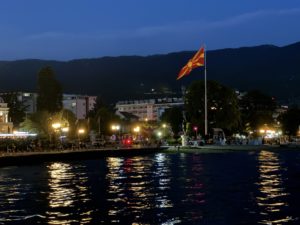
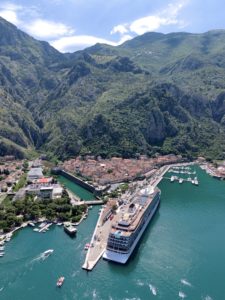
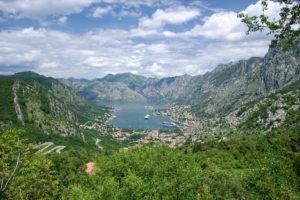
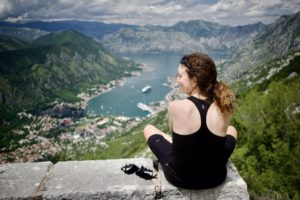
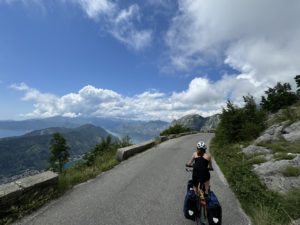
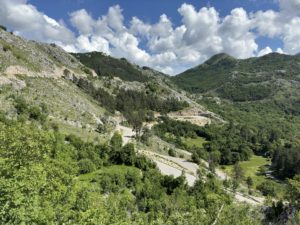
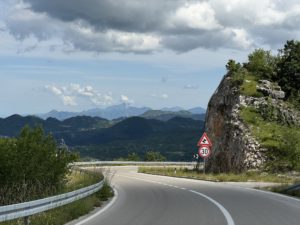
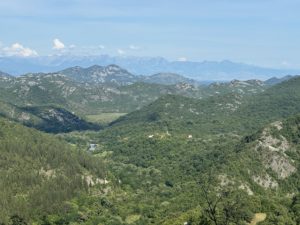
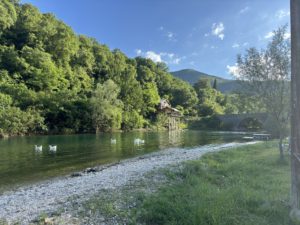
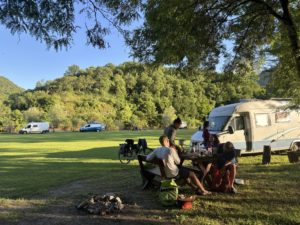
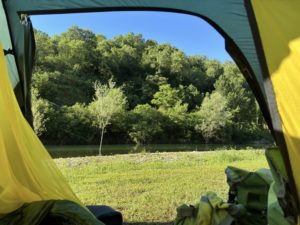
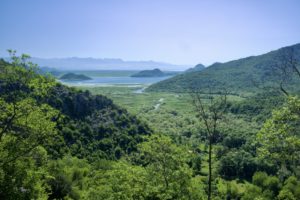
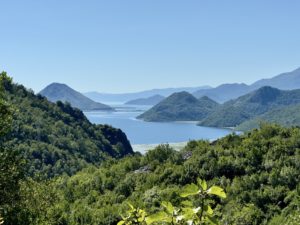
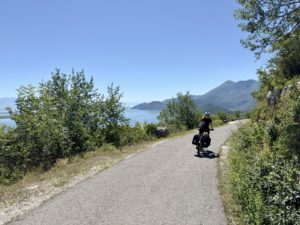
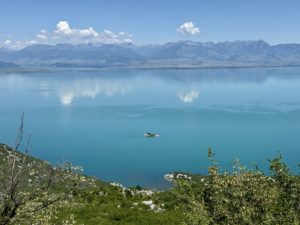
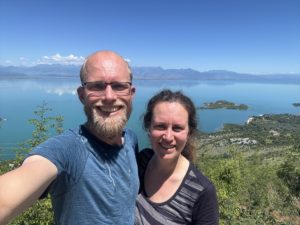
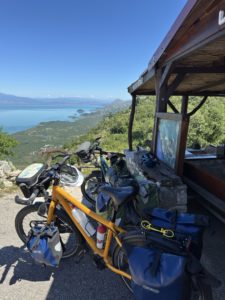
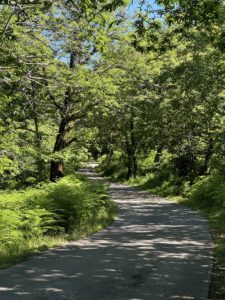
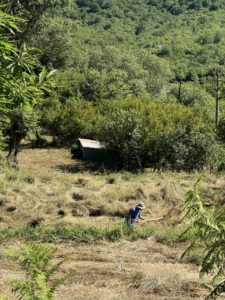
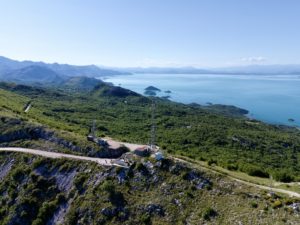
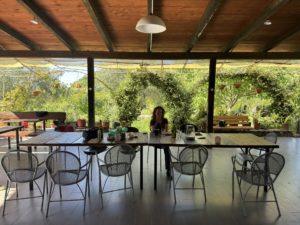
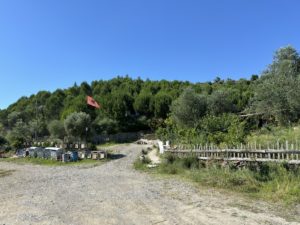
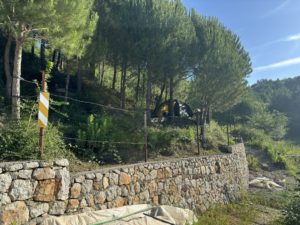
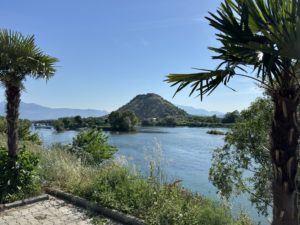
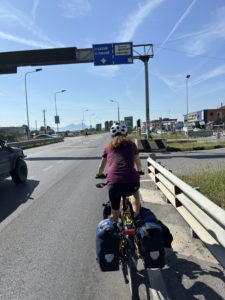
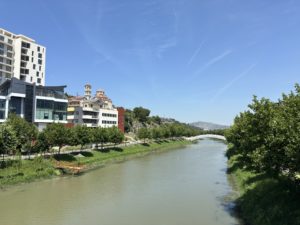
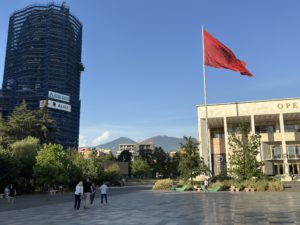
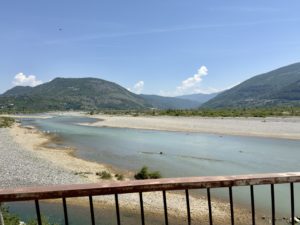
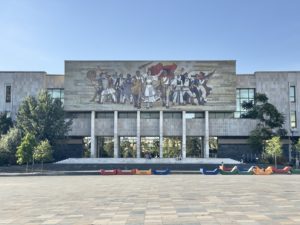
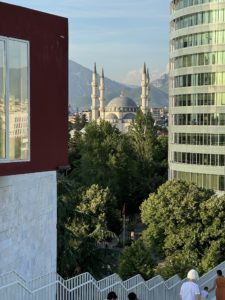
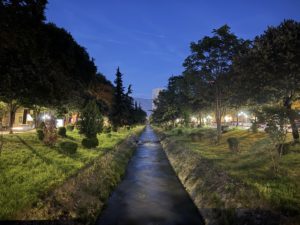
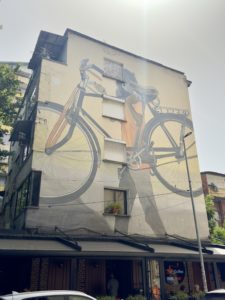
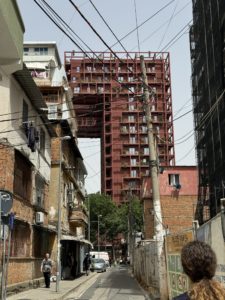
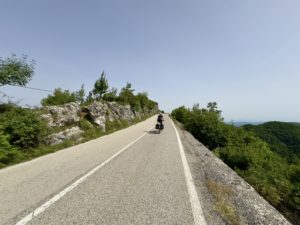
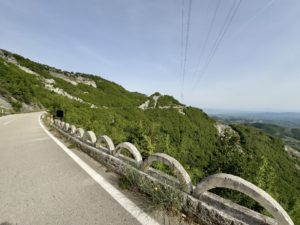
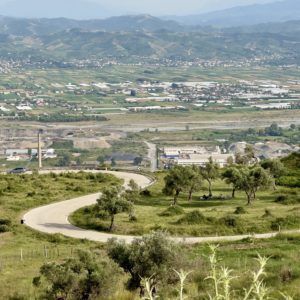
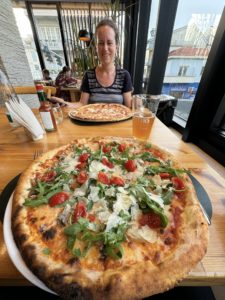
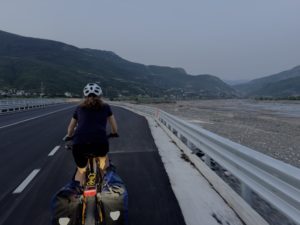
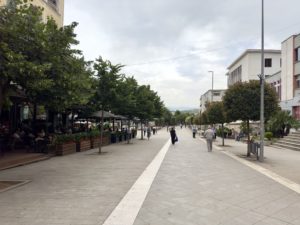
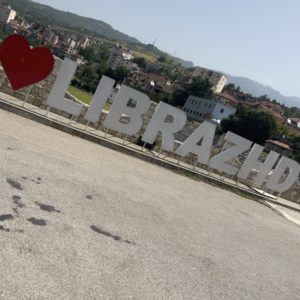
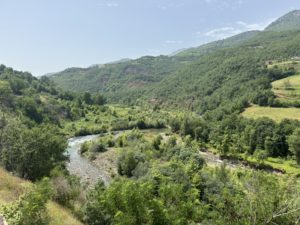
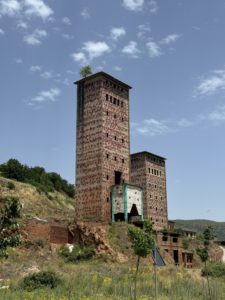
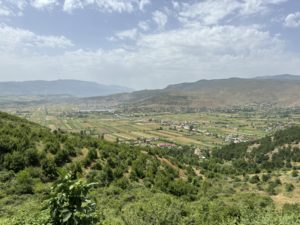
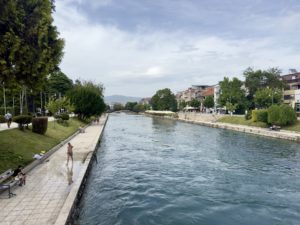
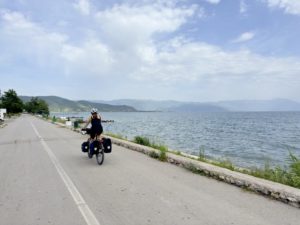
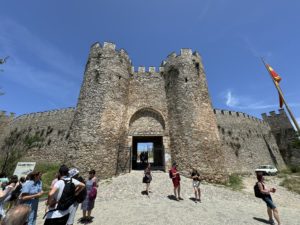
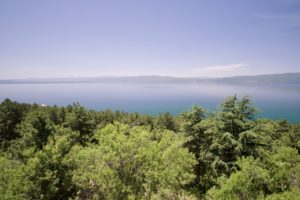
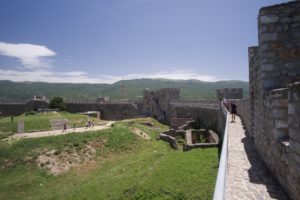
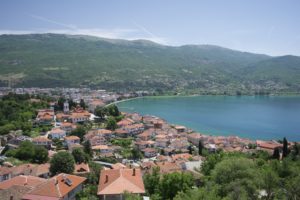
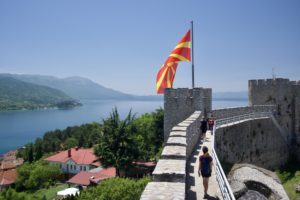
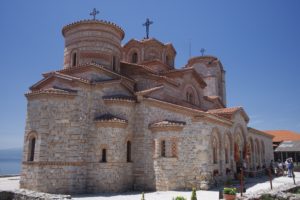
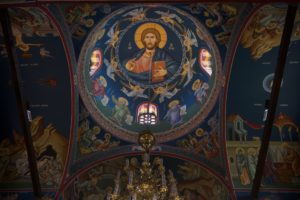
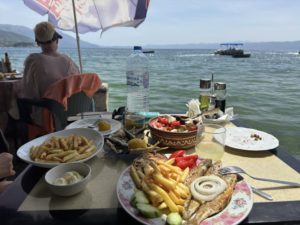
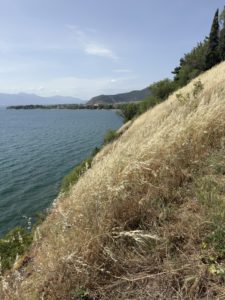
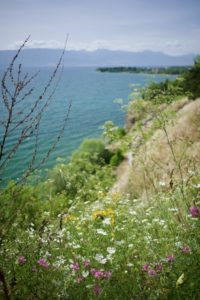
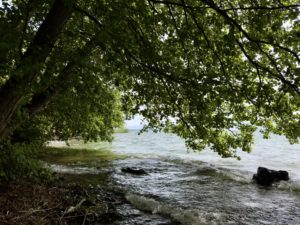
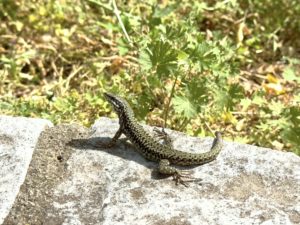
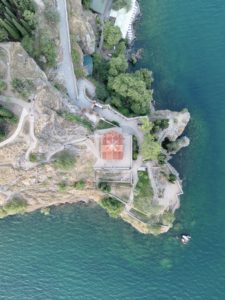
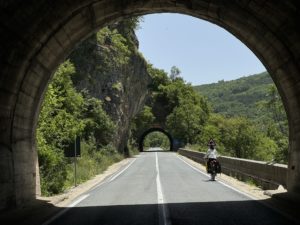
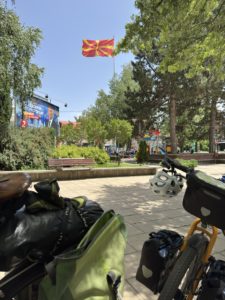
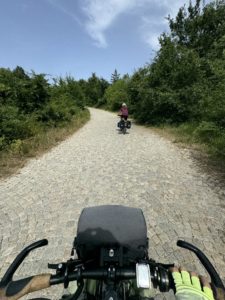
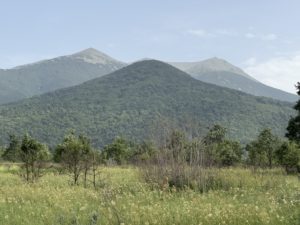
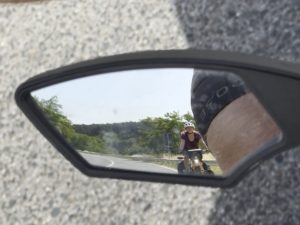
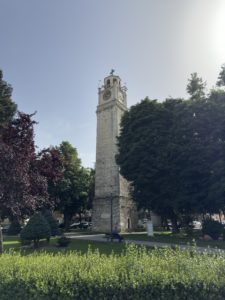
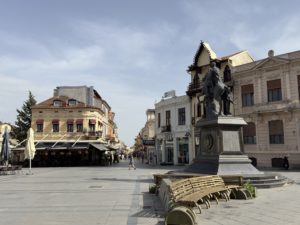
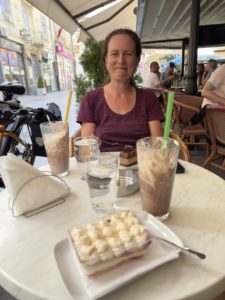
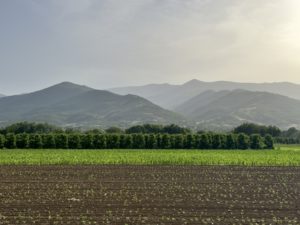
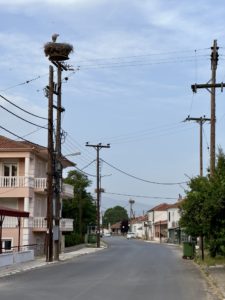
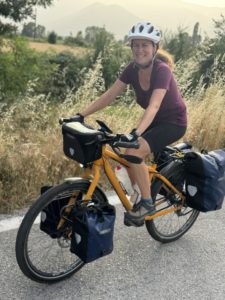
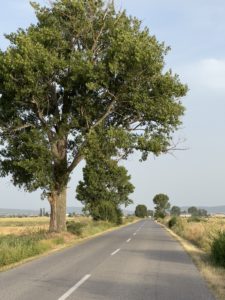
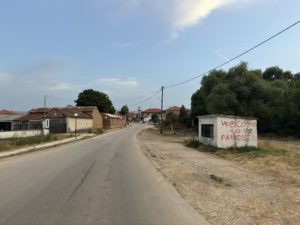
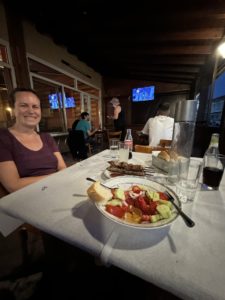
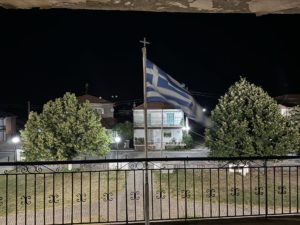
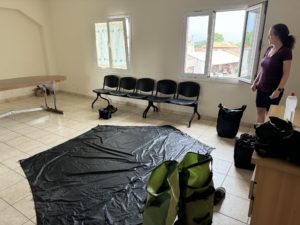
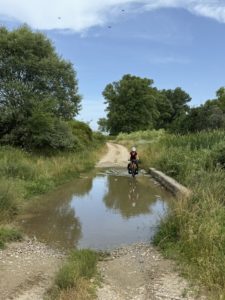
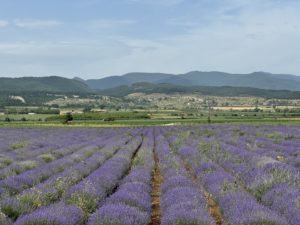
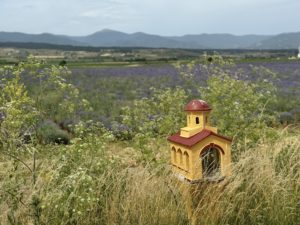
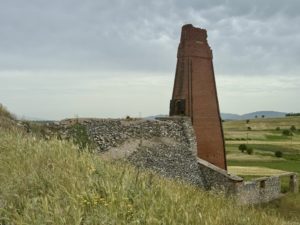
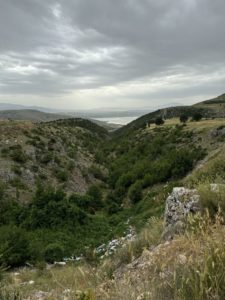
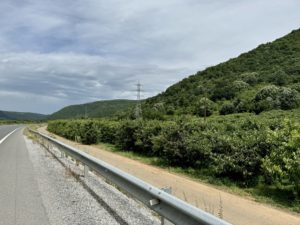
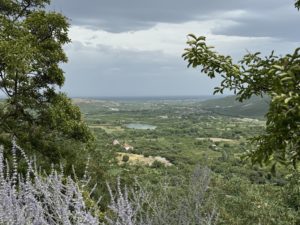
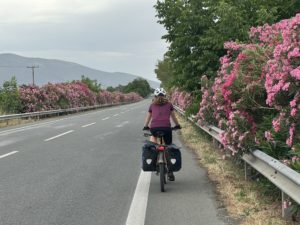
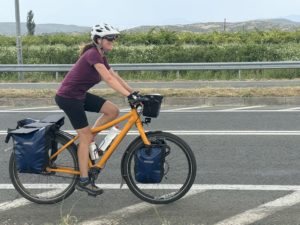
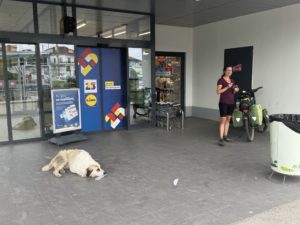
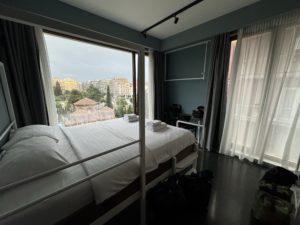
Leave a Reply